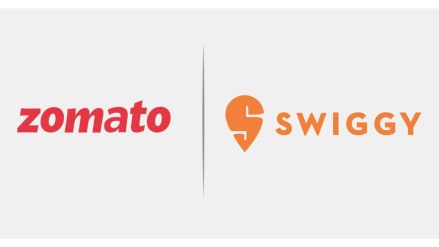Even as Swiggy and Eternal (formerly Zomato) reassured stock exchanges that India’s newly implemented labour codes would not materially alter their business outlook, market analysts paint a far less benign picture. Brokerages tracking the impact of the Code on Social Security, 2020 (CoSS) say the mandated contributions are set to increase operating costs across food delivery and quick commerce, costs that platforms are unlikely to absorb for long, Mint reported.
Under the new framework, digital platforms must contribute between 1% and 2% of annual turnover, capped at 5% of payouts to gig workers, towards a central welfare fund. Most analyst models assume the higher end of this range, given the direction of regulatory intent. Based on this, per-order costs could rise by Rs 2-3, translating into billions of rupees in additional annual expenses, the report said.
JM Financial estimates that the levy would add roughly Rs 2.1-2.5 to each order across both food delivery and quick commerce categories. As per the report, when this is applied to projected FY26 order volumes, this implies an incremental cost burden of nearly Rs 430 crore for Eternal and around Rs 260 crore for Swiggy at a consolidated level.
Limited headroom to absorb new costs
With profitability still fragile, analysts believe these companies have little choice but to pass on the additional burden to consumers. “This is a meaningful amount given that these aggregators are far from their own sustainable profitability guidance. Companies would eventually pass on the additional burden to their end customers rather than absorb the impact,” JM Financial noted in a recent report.
The timing compounds the pressure. Customers already face an expanding stack of charges, including platform fees, small-order penalties, peak-hour surges and revised GST levies. An incremental Rs 2-3 per order effectively adds another pricing lever, potentially making this the fourth cumulative price bump in under two years.
Karan Taurani of Elara Securities told Mint that if contributions hit the 5% cap on gig worker payouts, rider costs would rise notably. Eternal’s delivery cost would climb from 9.8% to 10.3% of GMV, while Swiggy’s could move from 11.6% to over 12%. For companies still grappling with losses, even minor GMV-linked increases carry outsized impact.
Financial stress persists
Swiggy recently reported an Ebitda margin of (-)19%, while Eternal saw adjusted Ebitda decline 32% year-on-year to Rs 224 crore in Q2FY26. Though order values have inched up, averaging Rs 385 per food order at both platforms and over Rs 500 in quick commerce for Blinkit, analysts caution that price-sensitive customers may trim lower-value orders in response to fresh hikes.
In Q2FY26, Swiggy’s revenue rose 54.4% to Rs 5,561 crore, but its net loss widened to Rs 1,092 crore. Eternal posted revenue of Rs 13,590 crore, up 183%, though net profit dropped sharply to Rs 65 crore.
Social security boost, business squeeze
While the CoSS marks a significant milestone for gig worker welfare, unlocking access to insurance, healthcare and retirement benefits, analysts argue the economic cost will ultimately be borne by end users, at least in the near term.
For now, the analyst consensus is clear: despite corporate assurances, the new labour code is likely to make the unit economics of food delivery and quick commerce more expensive, and the bill may soon land in consumers’ carts.
